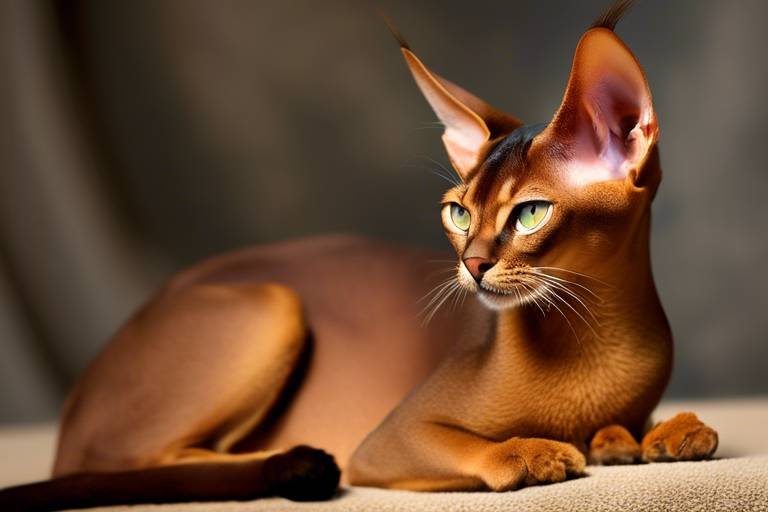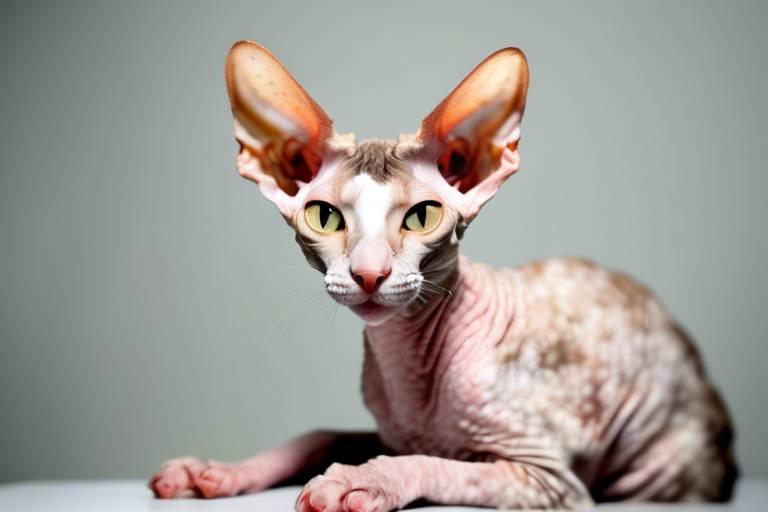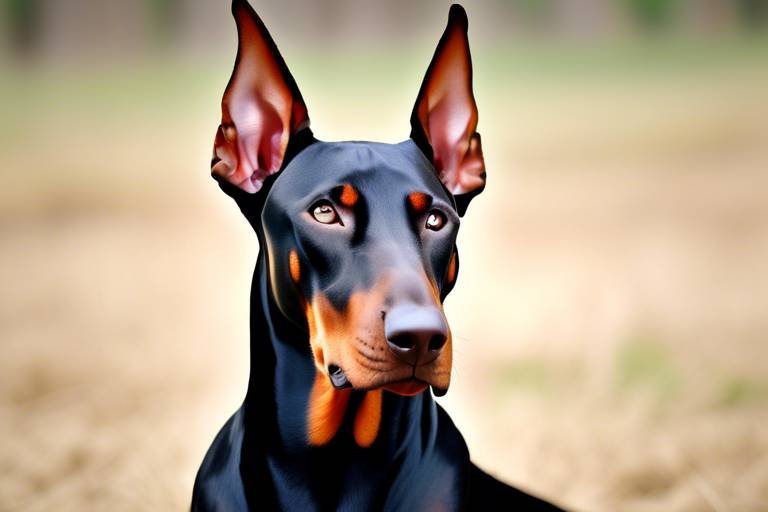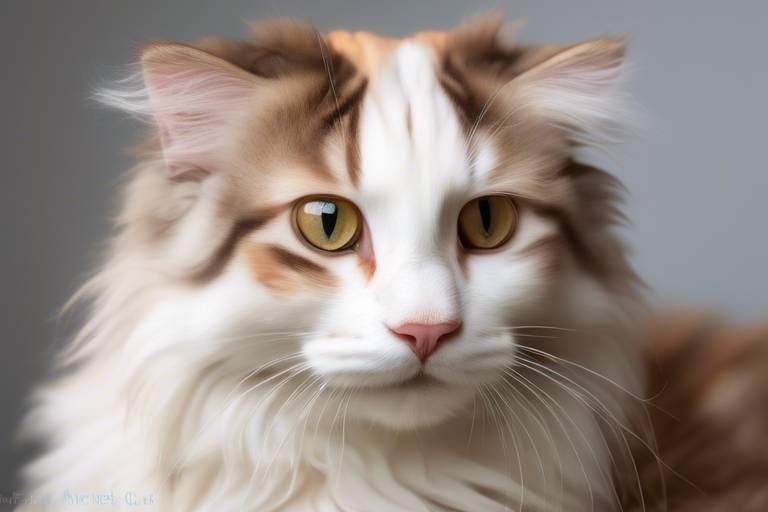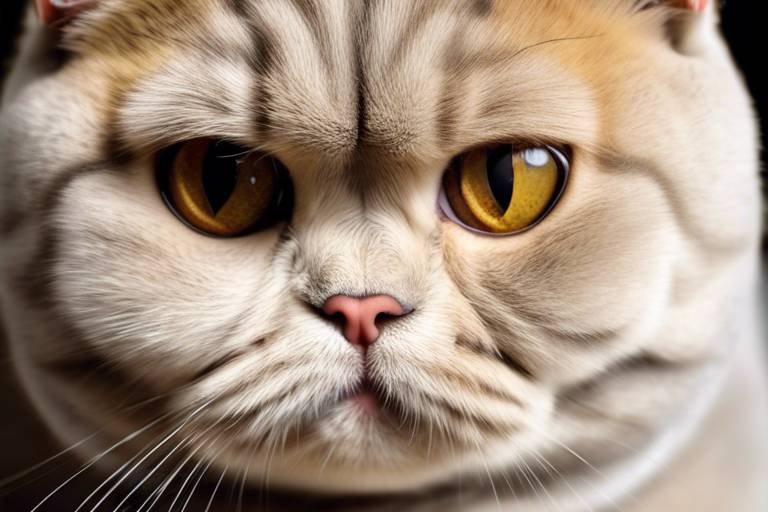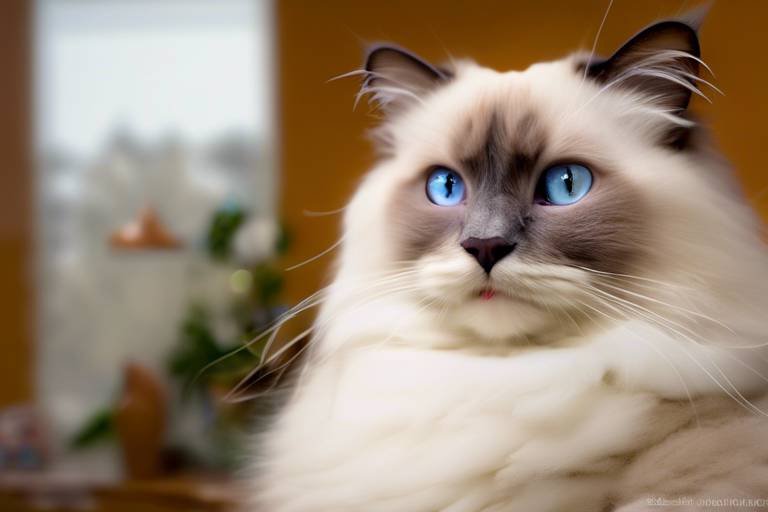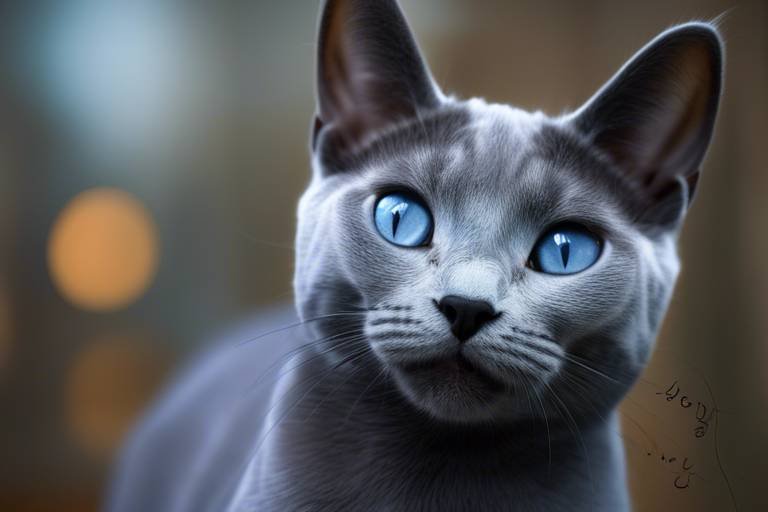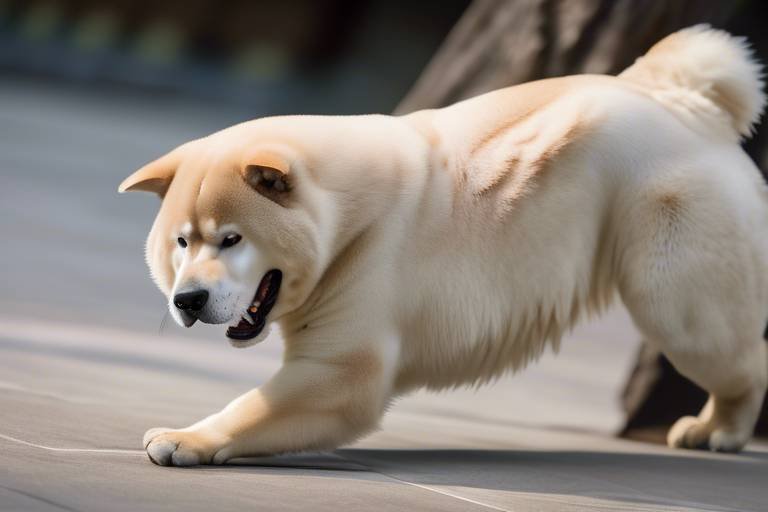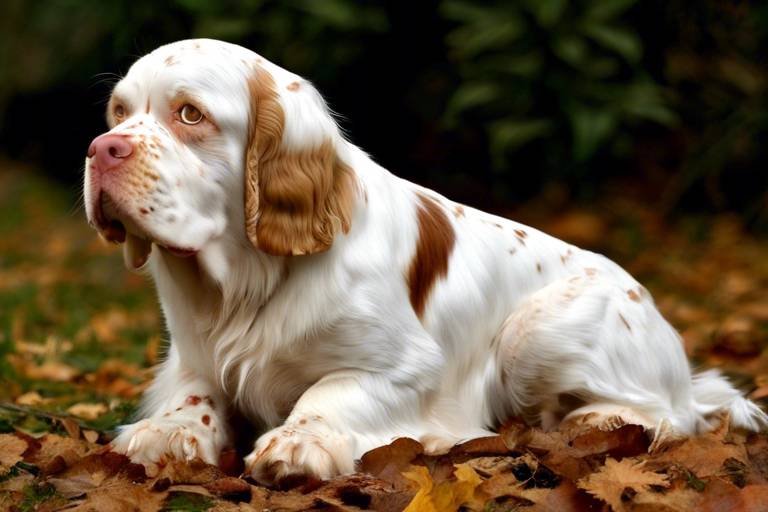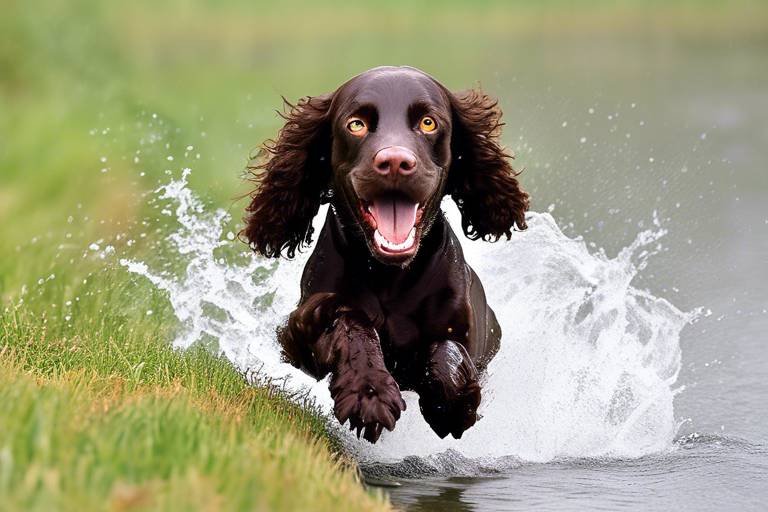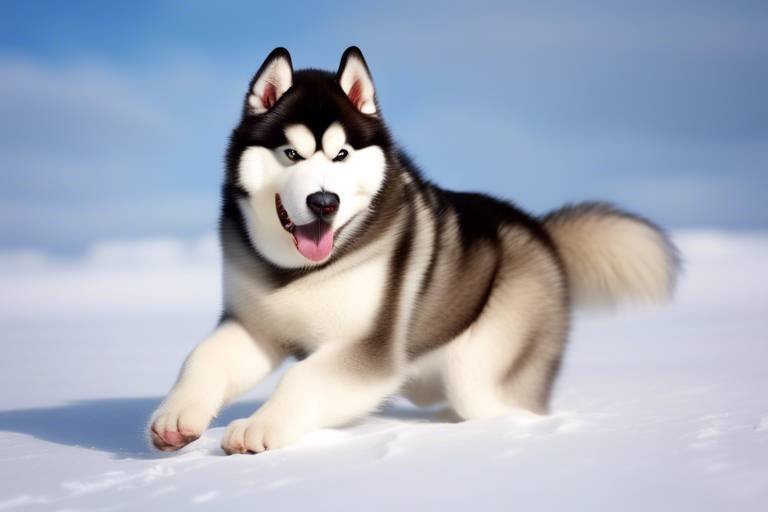The Unique Features of the Abyssinian Cat
The Abyssinian cat is not just a pet; it's an experience! With their striking looks and vibrant personalities, these felines have captured the hearts of cat lovers around the globe. Originating from a lineage steeped in history, the Abyssinian offers a unique blend of charm and elegance that makes them stand out in any household. In this article, we will explore the distinctive characteristics of the Abyssinian cat, including its fascinating history, remarkable physical traits, playful personality, grooming needs, health considerations, and much more. If you're considering adding an Abyssinian to your family or simply want to learn more about this captivating breed, you're in for a treat!
The history of the Abyssinian cat is as intriguing as the cat itself. Believed to have originated in ancient Egypt, these cats were revered by pharaohs and depicted in various artifacts, showcasing their long-standing relationship with humans. Some historians suggest that the Abyssinian may have been brought to Europe by British soldiers returning from Ethiopia, where they were known as "Abyssinia." Over the years, this breed has evolved, gaining popularity in households due to its striking appearance and engaging personality. Today, the Abyssinian is one of the most sought-after breeds, beloved for its unique traits and lively spirit.
Abyssinians are known for their **striking appearance**, which sets them apart from other breeds. Their coat is a stunning feature, often described as resembling the shimmering sands of the desert. With a muscular build, long legs, and a graceful posture, these cats exude elegance. The ticked tabby pattern of their fur creates a unique texture that catches the light beautifully, making them a joy to behold. Abyssinians typically have almond-shaped eyes that can vary in color, adding to their overall allure. It's this combination of **physical traits** that makes the Abyssinian a true standout in the feline world.
The coat of an Abyssinian is one of its most defining features. Characterized by a **ticked tabby pattern**, each hair has multiple bands of color, creating a rich, warm appearance. This unique pattern not only enhances their beauty but also contributes to their agile and energetic nature. The ticked coat is not just for looks; it helps them blend into their environment, a trait that harkens back to their wild ancestors. Abyssinians are often seen in various color variations, each bringing its own charm to this already captivating breed.
Abyssinians come in several stunning colors, including:
- Ruddy: A warm, rich color that resembles the hue of a sunset.
- Red: A vibrant shade that adds a splash of energy to their appearance.
- Blue: A soft, silvery hue that gives them an ethereal look.
- Fawn: A light, delicate color that is both subtle and beautiful.
Each color variation brings its own unique appeal, making it easy to understand why many people are drawn to this breed.
The body structure of the Abyssinian is another aspect that makes them unique. With a **muscular build** and long, slender legs, they are built for agility and grace. This athleticism allows them to leap and climb with ease, making them playful companions that love to explore their surroundings. Their medium-sized frame is balanced and elegant, contributing to their overall aesthetic appeal. When you see an Abyssinian in motion, it's hard not to be captivated by their fluid movements and lively demeanor.
The eye color of Abyssinians can vary widely, ranging from shades of gold to green. These expressive eyes not only add to their beauty but also reflect their playful and curious nature. The contrast between their fur and eye color creates a striking visual effect that is hard to ignore. Whether they are gazing at you with affection or observing their surroundings with keen interest, the eyes of an Abyssinian are truly mesmerizing.
When it comes to personality, Abyssinians are known for their **playful and social nature**. They are not just cats; they are companions that thrive on interaction and engagement. Their intelligence is evident in their playful antics, and they often require mental stimulation to keep them happy. Abyssinians are known to be curious explorers, always on the lookout for new adventures, making them entertaining pets for families and individuals alike.
Playfulness is a hallmark of the Abyssinian breed. These cats have an endless supply of energy and love to engage in various activities. From chasing after feather toys to climbing on cat trees, they are always up for a game. Their playful nature makes them excellent companions for children and adults alike, as they bring joy and laughter into the home. It's not uncommon to find an Abyssinian engaging in a game of hide-and-seek or racing around the house, showcasing their lively spirit.
Abyssinians thrive on **social interaction** and are known for their affectionate behavior. They bond closely with their owners and often follow them around the house, seeking companionship and attention. This breed is not one to shy away from affection; they love to cuddle and be petted, often curling up next to their humans for a cozy nap. Their need for companionship makes them ideal pets for families or individuals who can dedicate time to their social needs.
Despite their short coats, Abyssinians require regular grooming to maintain their health and appearance. While they are relatively low-maintenance compared to long-haired breeds, a consistent grooming routine is essential. Regular brushing helps reduce shedding and keeps their coat shiny and healthy. Abyssinians enjoy the grooming process, often purring contentedly as they are pampered. It's a great way to bond with your feline friend while ensuring they look their best.
Brushing is essential for an Abyssinian's coat health. Using a soft-bristle brush, gently brush their fur at least once a week to remove loose hairs and prevent matting. This not only keeps their coat looking fabulous but also helps reduce allergens in your home. Plus, it's a great opportunity to check for any skin issues or parasites, ensuring your Abyssinian stays healthy and happy.
While Abyssinians do not require frequent baths, there are times when a bath can be beneficial. If they get into something messy or their coat starts to lose its luster, a gentle bath can help restore their shine. Use a mild cat shampoo and ensure that you rinse thoroughly to avoid any residue. Bathing can be a fun bonding experience, but always make sure to dry them off properly afterward to keep them comfortable.
Like all breeds, Abyssinians are prone to certain health issues, making it crucial for owners to stay informed. Regular veterinary check-ups are essential for early detection and prevention of potential health concerns. Abyssinians can be susceptible to genetic conditions, so understanding these risks can help you provide the best care possible.
Abyssinians can be susceptible to specific genetic conditions, such as renal amyloidosis and hip dysplasia. Regular veterinary check-ups are vital for early detection, as these conditions can significantly affect their quality of life. Keeping an eye on their health and being proactive can lead to a longer, happier life for your Abyssinian.
Proper nutrition is vital for an Abyssinian's health. A balanced diet rich in protein is essential to support their active lifestyle. Look for high-quality cat food that lists meat as the first ingredient, and consult your veterinarian for personalized feeding recommendations. Maintaining a healthy weight is crucial, as obesity can lead to various health issues. By providing the right diet, you can ensure your Abyssinian thrives!
In summary, the Abyssinian cat is a unique breed with captivating features and a rich history. Understanding their traits, needs, and personality can help potential owners provide the best care and companionship. Whether you are drawn to their stunning appearance, playful nature, or affectionate personality, the Abyssinian is sure to bring joy and love into your home.
- Are Abyssinians good with children? Yes! Abyssinians are known for their playful and social nature, making them great companions for families with children.
- Do Abyssinians require a lot of grooming? While they have short coats, regular brushing is recommended to keep their fur healthy and reduce shedding.
- What is the lifespan of an Abyssinian cat? On average, Abyssinians live between 12 to 15 years, but with proper care, they can live even longer.
- Are Abyssinians prone to any specific health issues? Yes, they can be susceptible to genetic conditions, so regular veterinary check-ups are essential.
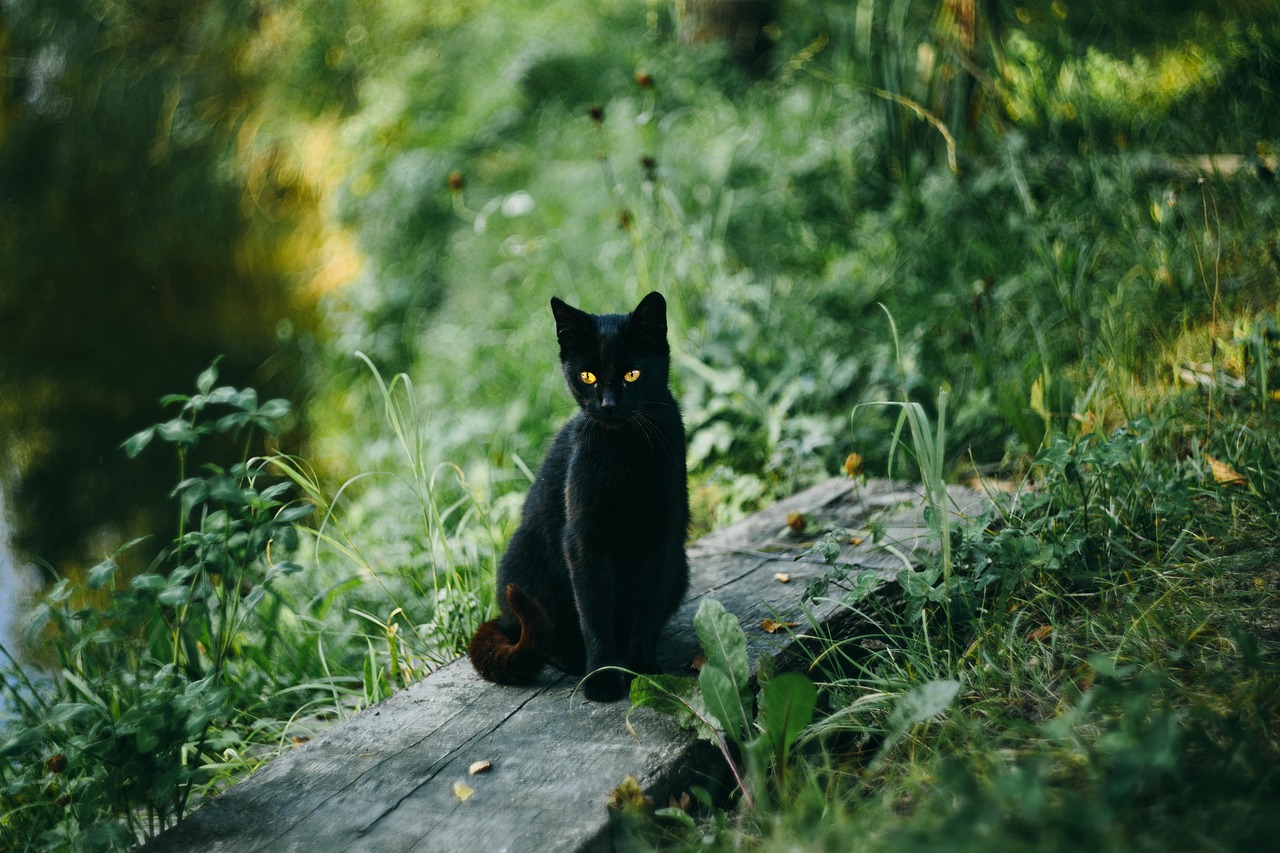
History of the Abyssinian Cat
The Abyssinian cat boasts a history that is as intriguing as its appearance. Many enthusiasts believe that this breed is one of the oldest domesticated cats, tracing its roots back to ancient Egypt. It is often depicted in hieroglyphics and artwork, suggesting a close relationship with humans in those times. The name "Abyssinian" itself is derived from the ancient kingdom of Abyssinia, now known as Ethiopia, which adds an exotic flair to its already captivating story.
Interestingly, the Abyssinian cat's origins are shrouded in mystery. While many speculate that they descended from the sacred cats of Egypt, others argue that they may have originated from the British cats that were brought back from Abyssinia by soldiers in the late 19th century. Regardless of their exact beginnings, it is clear that these cats have made a significant mark on the world of feline companions.
In the late 1800s, the breed gained popularity in Europe, particularly in England, where they were showcased in cat shows. Their unique appearance and lively personality quickly captivated the hearts of cat lovers. By the early 20th century, the Abyssinian cat had made its way to the United States, where it continued to grow in popularity. Breeders began focusing on enhancing their distinctive coat patterns and vibrant colors, solidifying their status as a beloved household pet.
Throughout the years, the Abyssinian cat has maintained its reputation as a playful and intelligent breed. Their history is not just about their physical traits; it also encompasses their adaptability and ability to bond with humans. Today, Abyssinians are cherished not only for their striking looks but also for their engaging personalities, making them a popular choice among families and individuals alike.
As we delve deeper into the unique features of the Abyssinian cat, it’s essential to appreciate the rich tapestry of history that has shaped this breed into what it is today. From ancient civilizations to modern households, the journey of the Abyssinian cat is a testament to its enduring appeal and charm.
- What are the origins of the Abyssinian cat? The Abyssinian cat is believed to have ancient roots, possibly tracing back to Egypt or Abyssinia (Ethiopia).
- When did Abyssinians become popular? They gained popularity in the late 1800s in Europe and made their way to the United States shortly after.
- What makes Abyssinians unique? Their ticked coat, muscular build, and playful personality set them apart from other breeds.
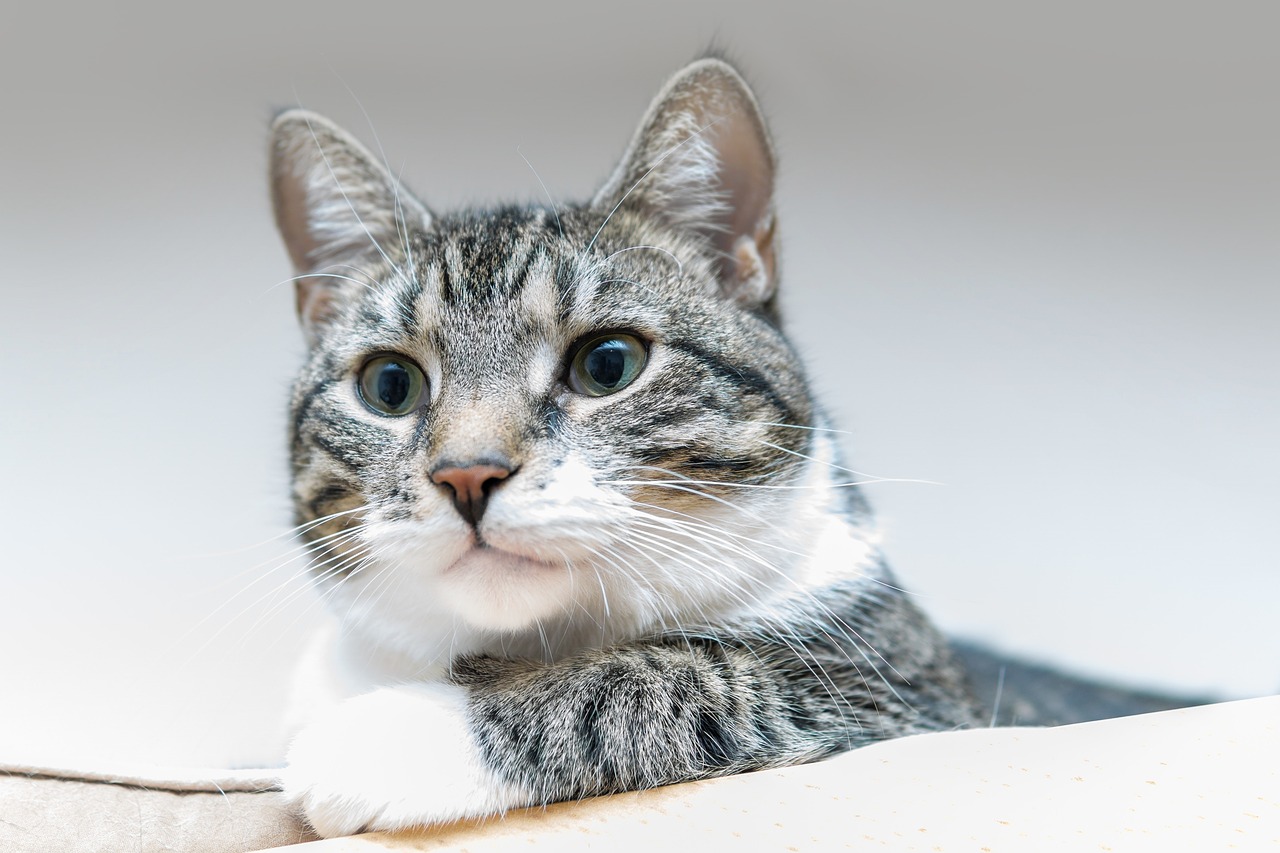
Physical Characteristics
The Abyssinian cat is truly a sight to behold, with its striking appearance that captures the attention of everyone it meets. One of the most notable features of this breed is its unique coat, which is often described as having a warm, glowing quality. The fur is short but dense, providing a luxurious feel to the touch. The most distinctive aspect of their coat is the ticked tabby pattern, where each hair is banded with different colors, creating a mesmerizing effect. This pattern not only adds to their aesthetic appeal but also makes them stand out among other breeds.
The ticked tabby pattern is a hallmark of the Abyssinian breed. Unlike traditional tabby cats that have stripes or spots, Abyssinians feature a coat where the individual hairs are banded with two or more colors. This gives them a unique, shimmering appearance that changes with the light. The coat is not just beautiful; it also serves a practical purpose, providing camouflage in their natural habitat. The Abyssinian's coat truly reflects their playful and adventurous spirit.
Abyssinians come in a variety of colors, each with its own unique charm. The most common colors include:
- Ruddy: A warm, rich color that resembles a golden brown.
- Red: A vibrant shade that stands out with its fiery hue.
- Blue: A soft, silvery-gray that gives a sophisticated look.
- Fawn: A delicate, light tan that is subtle yet elegant.
Each color variation adds to the breed’s allure, and while ruddy is the most recognized, many owners have their personal favorites, making every Abyssinian unique.
The body structure of the Abyssinian is another aspect that contributes to its overall appeal. These cats are known for their muscular build and long legs, giving them an athletic appearance. They possess a medium-sized body that is both agile and graceful, allowing them to leap and climb with ease. Their strong limbs and well-defined muscles make them excellent jumpers, often seen perched high on shelves or furniture, observing their surroundings with curiosity. This physical prowess is not just for show; it reflects their active nature and love for play.
The eye color of Abyssinians is as captivating as their coat. Typically, their eyes are large, almond-shaped, and can vary from shades of gold to green. The bright, expressive eyes complement their striking coat, enhancing their overall beauty. The vivid eye colors often seem to sparkle, especially when they are excited or curious. This combination of features gives the Abyssinian a look that is both playful and mysterious, drawing you in and making you want to know more about these fascinating creatures.
In summary, the physical characteristics of the Abyssinian cat are not only visually stunning but also serve practical purposes that reflect their history and personality. From their unique coat patterns and vibrant colors to their agile body structure and expressive eyes, every detail contributes to the allure of this remarkable breed.
Q: What is the average weight of an Abyssinian cat?
A: Abyssinians typically weigh between 8 to 12 pounds, depending on their age and gender.
Q: Do Abyssinians shed a lot?
A: They have short coats and are considered low-shedding, but regular grooming helps minimize any loose fur.
Q: Are Abyssinians good with children and other pets?
A: Yes! Their social nature makes them great companions for families and they usually get along well with other pets.
Q: How often should I groom my Abyssinian?
A: Regular brushing once a week is recommended to keep their coat healthy and shiny.
Coat Patterns
The coat of an Abyssinian cat is not just a covering; it's a mesmerizing tapestry that tells a story of its lineage and character. One of the most remarkable features of this breed is its **ticked tabby pattern**, which is often mistaken for solid coloring at first glance. The ticked pattern consists of individual hairs that are banded with different colors, creating a stunning depth and richness to their fur. This unique feature sets them apart from many other breeds, giving them a distinctive appearance that is both elegant and playful.
When you look closely at an Abyssinian's coat, you’ll notice that the ticked pattern can vary in intensity and distribution. The combination of colors and the way they blend together can create a visual effect that is simply captivating. It's akin to a painter's brush strokes on a canvas, where every hue adds to the overall picture. This is why Abyssinians are often described as having a coat that resembles the soft glow of a sunset, with shades that shift and change depending on the light.
In addition to the ticked tabby pattern, Abyssinians come in several striking color variations. Here’s a quick look at the most common colors:
| Color Variation | Description |
|---|---|
| Ruddy | A rich, warm brown color with a vibrant ticked pattern. |
| Red | A bright, coppery hue that gives off a fiery appearance. |
| Blue | A soft, muted grayish-blue that is both unique and elegant. |
| Fawn | A light, creamy color that is often described as delicate and refined. |
Each of these color variations has its own charm, and enthusiasts of the breed often have their personal favorites. The **ruddy** color is particularly popular due to its vibrant appearance, while the **fawn** is cherished for its subtle elegance. Regardless of the color, every Abyssinian cat showcases that mesmerizing ticked pattern that makes them a visual delight.
In conclusion, the coat patterns of Abyssinians are not just about aesthetics; they reflect the breed's history and adaptability. Their unique ticked tabby pattern and beautiful color variations make them stand out in any setting, whether they're lounging in a sunbeam or playfully chasing after a toy. As you consider adding an Abyssinian to your family, remember that their coat is just one of the many features that make them such captivating companions.
- What is the average lifespan of an Abyssinian cat? Abyssinians typically live between 12 to 15 years, with proper care and regular veterinary check-ups.
- Do Abyssinians require a lot of grooming? While they have short coats, regular brushing is recommended to keep their fur healthy and reduce shedding.
- Are Abyssinians good with children and other pets? Yes, they are known for their playful and social nature, making them great companions for families and other pets.
Color Variations
The Abyssinian cat is not just a pretty face; it comes in a stunning array of colors that make each one unique. The most common color is ruddy, characterized by a warm, rich hue that resembles the color of a chestnut. This deep, vibrant shade is often accompanied by a ticked pattern, where each hair has multiple bands of color, giving the coat depth and dimension. But that's not all; Abyssinians also flaunt other captivating colors, each with its own charm.
Another popular color is red, which is a lighter, more vibrant version of ruddy. This color can evoke feelings of warmth and energy, making these cats stand out even more. Then we have the blue Abyssinians, which are a soft, silvery-gray tone that looks almost ethereal. Their unique color can sometimes leave people in awe, as it contrasts beautifully with their golden eyes.
Lastly, there's the fawn variation, which is a pale, creamy color that gives the Abyssinian a delicate and refined look. This color is less common than the others but is equally stunning, often drawing admiration from cat lovers. Each color variation not only adds to the breed's aesthetic appeal but also contributes to its personality and behavior. For instance, while color might not affect temperament, the uniqueness of each coat can certainly influence how they are perceived by potential owners.
To summarize, the color variations in Abyssinians include:
- Ruddy: Rich, warm chestnut color
- Red: Lighter, vibrant hue
- Blue: Soft silvery-gray tone
- Fawn: Pale, creamy color
When choosing an Abyssinian, it's essential to consider not just the color but also how it fits with your lifestyle and home environment. Each color variation brings its own flair and personality, making the decision a delightful yet thoughtful process. So, whether you're drawn to the fiery red or the serene blue, remember that every Abyssinian is a treasure waiting to be discovered!
Q1: What is the most common color for Abyssinian cats?
A: The most common color for Abyssinian cats is ruddy, which features a warm chestnut hue with a ticked pattern.
Q2: Are there any rare color variations in Abyssinians?
A: Yes, while ruddy and red are more common, fawn and blue are considered rarer variations that are equally beautiful.
Q3: Does the color of an Abyssinian affect its personality?
A: No, the color of an Abyssinian does not influence its personality. However, each cat's unique appearance may attract different owners.
Q4: How can I care for my Abyssinian's coat to maintain its color?
A: Regular grooming, including brushing and occasional bathing, can help maintain the vibrancy of your Abyssinian's coat.
Body Structure
The body structure of the Abyssinian cat is nothing short of fascinating. With their muscular build and long legs, these cats are not just beautiful; they are also incredibly agile and graceful. This breed is medium-sized, which means they strike a balance between being compact and athletic. Their bodies are well-proportioned, giving them a sleek appearance that is both elegant and powerful.
One of the most striking aspects of the Abyssinian's body is its slender, athletic frame. This build allows them to be quick on their feet, making them exceptional climbers and jumpers. In fact, many Abyssinians love to perch themselves high up on shelves or furniture, showcasing their natural instincts as agile hunters. Their long legs not only contribute to their speed but also add to their overall gracefulness, allowing them to navigate their environment with ease and confidence.
Another notable feature is their tail, which is long and tapering, further emphasizing their elegant silhouette. The tail acts as a balancing tool when they leap and climb, showcasing their acrobatic skills. Additionally, their paws are small and oval-shaped, which complements their overall slender appearance. This unique body structure is not just for show; it plays a crucial role in their personality and behavior.
To give you a better understanding of the Abyssinian's body structure, here’s a quick comparison of some key physical traits:
| Trait | Description |
|---|---|
| Size | Medium |
| Build | Muscular and slender |
| Legs | Long and strong |
| Tail | Long and tapering |
| Paws | Small and oval-shaped |
In summary, the Abyssinian cat's body structure is a perfect blend of strength, agility, and elegance. Whether they are leaping across the room or curling up next to you, their physical traits not only enhance their beauty but also contribute to their playful and lively nature. It's this combination of features that makes the Abyssinian not just a pet, but a remarkable companion that captivates the hearts of many.
- What is the average weight of an Abyssinian cat? Abyssinians typically weigh between 8 to 12 pounds.
- Do Abyssinians require a lot of exercise? Yes, they are very active and require regular playtime to keep them happy and healthy.
- How long do Abyssinians usually live? With proper care, Abyssinians can live between 12 to 15 years.
- Are Abyssinians good with children and other pets? Generally, they are social and affectionate, making them great companions for families and other pets.
Eye Color
The eye color of Abyssinian cats is as captivating as their striking coats. These felines are known for their **vibrant and expressive eyes**, which can range from shades of gold to green. The color of an Abyssinian’s eyes not only adds to their charm but also complements their overall appearance, enhancing their elegant and exotic look.
Typically, Abyssinians exhibit a **golden-yellow** eye color, which is often seen as the breed standard. However, some may surprise you with their **emerald green** eyes, which provide a stunning contrast to their warm-toned coats. The intensity of the eye color can vary based on the individual cat and its genetic background. For instance, younger kittens may have lighter eyes that darken as they mature.
To give you a clearer picture, here’s a quick breakdown of the common eye colors found in Abyssinians:
| Eye Color | Description |
|---|---|
| Golden Yellow | The most common eye color, offering a warm and inviting look. |
| Emerald Green | A less common but stunning color that enhances their exotic appearance. |
| Amber | A rich, warm hue that can sometimes be seen in certain individuals. |
These eye colors not only serve aesthetic purposes but also play a role in how Abyssinians interact with their environment. Their keen eyesight contributes to their playful and curious nature, allowing them to observe and engage with their surroundings effectively. Imagine an Abyssinian darting across the room, its bright eyes reflecting the light as it chases after a feather toy; it’s a sight that captures the essence of their playful spirit.
In conclusion, the eye color of Abyssinian cats is a fascinating aspect of their overall beauty. Whether it’s the warm glow of golden-yellow or the striking allure of emerald green, these eyes are windows into the lively and affectionate personality of this remarkable breed.
- What is the most common eye color for Abyssinian cats? The most common eye color is golden-yellow.
- Do Abyssinians have different eye colors as they age? Yes, their eye color can change, often becoming darker as they mature.
- Are there any health concerns related to eye color in Abyssinians? Generally, eye color does not indicate health issues, but regular veterinary check-ups are important.
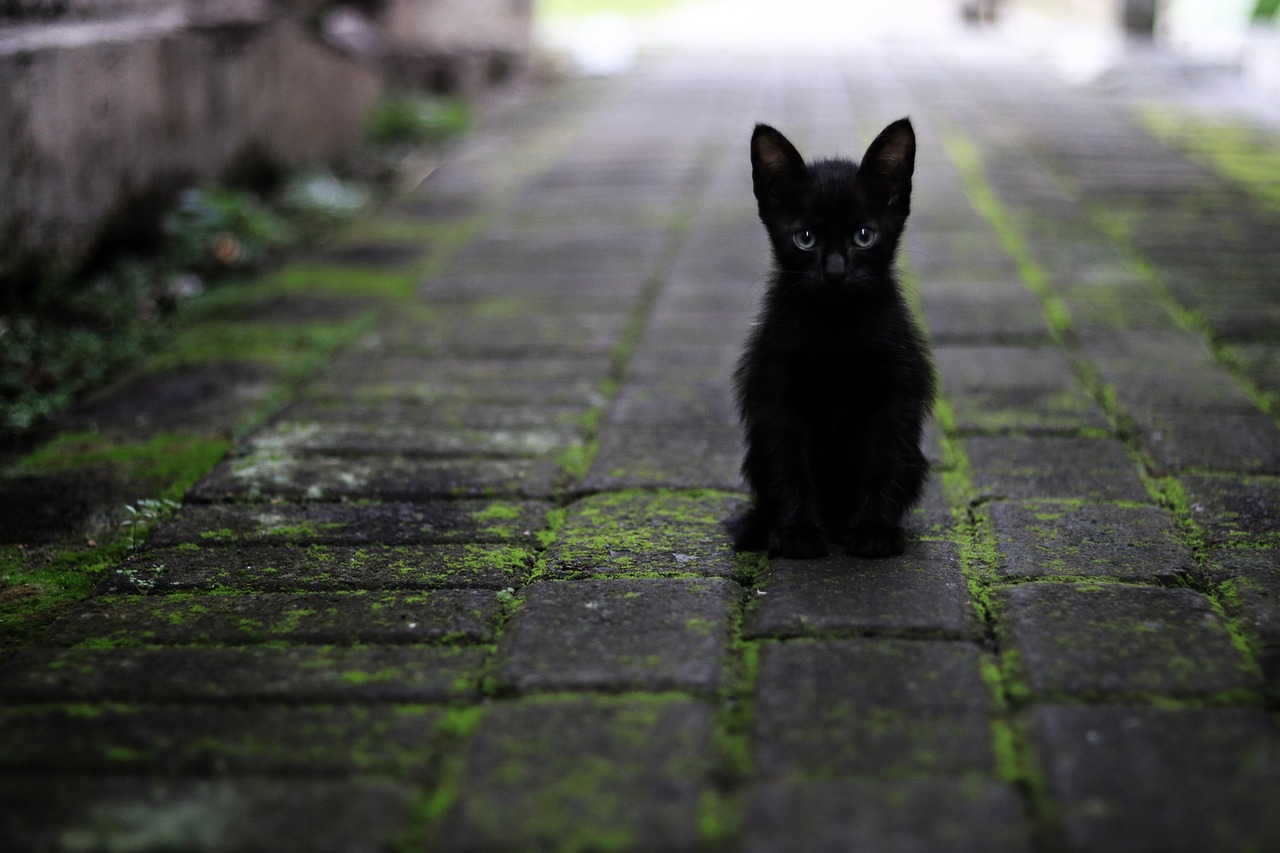
Personality Traits
The Abyssinian cat is not just a pretty face; they come with a personality that is as vibrant as their stunning coat. Known for their playful and social nature, these cats are often described as affectionate and intelligent. If you’re looking for a feline friend who will keep you entertained and engaged, the Abyssinian might just be the perfect match for you!
One of the most remarkable traits of Abyssinians is their playfulness. They are like little furry acrobats, always eager to leap, chase, and explore. Whether it’s a feather toy dangling from a string or a simple cardboard box, they find joy in the simplest of things. Their energy is infectious, and it’s not uncommon to find them engaging in a spirited game of hide-and-seek with their human companions. In fact, many owners have reported that their Abyssinians will initiate playtime, often bringing toys to their owners as if saying, “Let’s have some fun!”
But it's not just their playful antics that make them special. Abyssinians are also highly social. They thrive on interaction, both with their humans and other pets. If you’re someone who enjoys cuddling on the couch or having a chat, your Aby will likely be right there, purring away and soaking up all the attention. They are known to form strong bonds with their families, often following them around the house and showing a keen interest in whatever their humans are doing. This affectionate behavior not only makes them great companions but also helps them integrate seamlessly into family life.
Moreover, their intelligence is another standout feature. Abyssinians are quick learners and can be trained to perform tricks or follow commands with relative ease. They enjoy mental stimulation, so engaging them with puzzle toys or interactive games can keep their minds sharp and active. Think of them as the Einsteins of the cat world—always curious and eager to learn. This intelligence also means they require a good amount of stimulation; a bored Abyssinian can become mischievous, turning your living room into their personal playground.
In summary, the personality traits of the Abyssinian cat make them a delightful addition to any household. Their playful, social, and intelligent nature ensures that life with an Abyssinian is never dull. They are not just pets; they are companions who bring joy and laughter into your life. If you’re considering adding one to your family, be prepared for a whirlwind of fun and affection!
- Are Abyssinians good with children? Yes, their playful and social nature makes them great companions for children.
- Do Abyssinians require a lot of grooming? They have short coats, which means grooming is minimal, but regular brushing helps keep their fur shiny.
- How do Abyssinians interact with other pets? They are generally friendly and can get along well with other pets if properly introduced.
- What is the lifespan of an Abyssinian cat? On average, Abyssinians live between 12 to 15 years, with proper care and attention.
Playfulness
The Abyssinian cat is renowned for its playful nature, which often leaves owners both entertained and enchanted. Imagine a furry little acrobat, leaping from one piece of furniture to another, chasing after a feather toy with the enthusiasm of a child on a sugar rush. Their energy levels are off the charts, making them one of the most engaging breeds for families and individuals alike. This breed thrives on play, and their inquisitive minds are always looking for new challenges to conquer.
One of the most delightful aspects of an Abyssinian's playfulness is their ability to turn ordinary objects into sources of entertainment. A simple cardboard box can become a fort, a crumpled piece of paper can transform into a tantalizing prey, and a laser pointer can ignite a thrilling chase. They are natural hunters, and this instinct drives them to engage in activities that mimic their wild ancestors. Their agility and quick reflexes make them exceptional at games that require speed and precision.
But what exactly do Abyssinians enjoy doing during their playtime? Here are some of their favorite activities:
- Chasing Toys: Whether it's a feather wand, a ball, or a laser pointer, Abyssinians love to chase and pounce.
- Interactive Games: Puzzle toys that dispense treats can keep their clever minds engaged for hours.
- Climbing and Exploring: Providing vertical spaces like cat trees allows them to satisfy their curiosity and natural climbing instincts.
It's essential for owners to engage in regular play sessions with their Abyssinians. Not only does this help to burn off their abundant energy, but it also strengthens the bond between pet and owner. Think of it as a workout for both parties—while you’re tossing toys and getting your cat to leap and bound, you're also getting in some much-needed exercise yourself!
In conclusion, the playful spirit of the Abyssinian cat is one of the many reasons they make such lovable companions. Their energy, curiosity, and knack for fun ensure that life with an Abyssinian is never dull. So, if you're considering adding an Abyssinian to your family, be prepared for a whirlwind of playful antics that will keep you entertained and bring joy to your home.
- How much playtime does an Abyssinian need? Abyssinians require daily playtime to keep them happy and healthy. Aim for at least 30 minutes of interactive play each day.
- Are Abyssinians good with children? Yes, their playful and social nature makes them great companions for children, provided they are introduced properly.
- What toys do Abyssinians prefer? They enjoy a variety of toys, particularly those that mimic hunting, such as feather wands and laser pointers.
Social Interaction
The Abyssinian cat is not just a pet; it’s a lively companion that thrives on . These cats are known for their affectionate nature and strong bonds with their human families. If you’re considering bringing an Abyssinian into your home, be prepared for a cat that will want to be involved in your daily life. They are incredibly curious and often follow their owners around, eager to be part of the action. Imagine having a furry little shadow that’s always ready to join in on your adventures!
Abyssinians are highly social creatures that enjoy the company of both humans and other pets. They are not the type of cat that prefers solitude; rather, they seek out companionship and interaction. This breed is known for its playful antics, which can often lead to entertaining performances. Whether it’s chasing after a feather toy or engaging in a friendly game of hide-and-seek, Abyssinians have a way of making playtime a delightful experience. Their playful nature not only keeps them physically active but also strengthens their bond with their owners.
When it comes to socializing, Abyssinians are quite intelligent and can learn commands and tricks quickly. They enjoy being mentally stimulated, so incorporating interactive toys and puzzle games into their playtime can be beneficial. This not only keeps them entertained but also helps to prevent boredom-related behaviors, such as scratching or excessive meowing. Regular play sessions can enhance their social skills and keep their minds sharp.
Moreover, Abyssinians are known for their affectionate behavior. They are likely to seek out cuddles and lap time, often curling up next to their owners while purring contentedly. This breed is also known to greet their family members at the door, showcasing their excitement and eagerness for companionship. They thrive in environments where they receive plenty of attention and love. If you’re looking for a cat that will shower you with affection and enjoy spending time with you, the Abyssinian might just be the perfect fit for your family.
In summary, the social interaction of Abyssinians is a defining trait of this breed. They are not just cats; they are engaging companions that enrich the lives of those around them. Their playful and affectionate nature makes them a joy to have in any household, ensuring that there is never a dull moment. If you can provide the love and attention they crave, an Abyssinian cat will reward you with loyalty and companionship that is truly unmatched.
- Do Abyssinians get along with other pets? Yes, Abyssinians are generally friendly and can get along well with other cats and even dogs, especially if introduced at a young age.
- How much attention do Abyssinians need? They require a good amount of attention and interaction, as they thrive on social engagement with their owners.
- Are Abyssinians good with children? Absolutely! Their playful and affectionate nature makes them great companions for children, as long as interactions are supervised.
- What is the average lifespan of an Abyssinian cat? Abyssinians can live between 12 to 15 years, with proper care and regular veterinary check-ups.
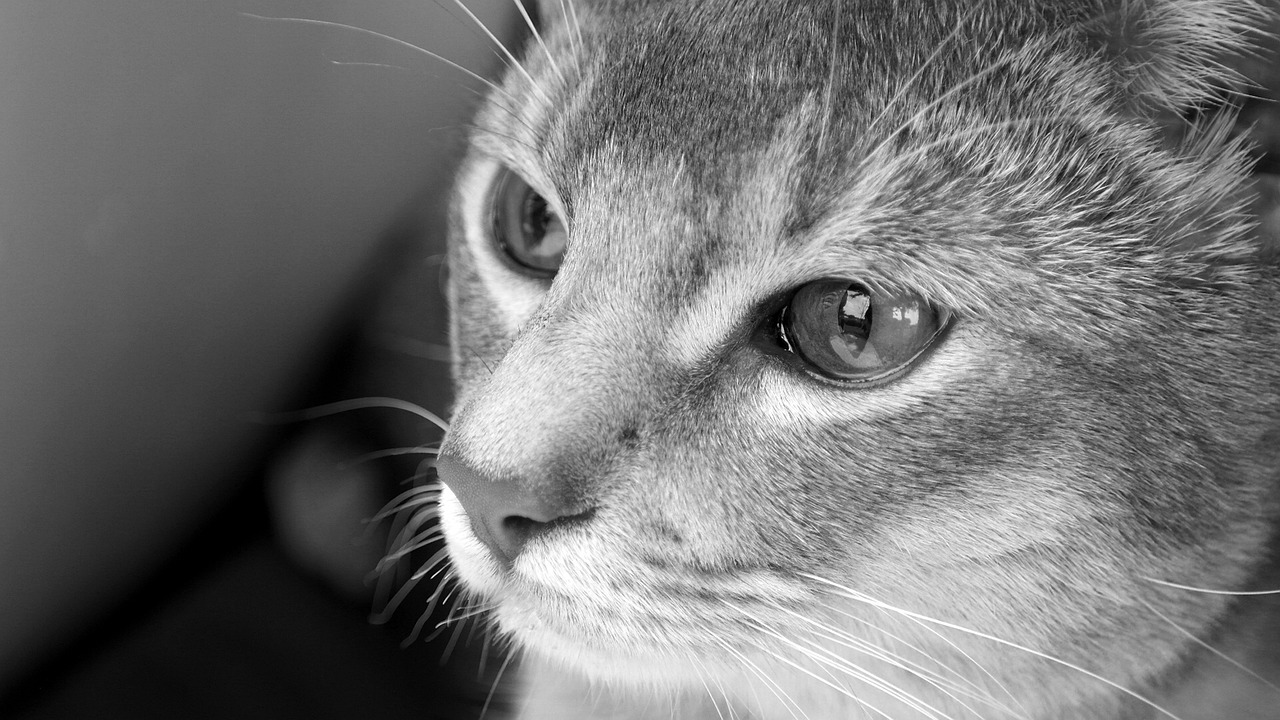
Grooming Needs
The grooming needs of an Abyssinian cat might surprise you, especially considering their short coat. While many believe that short-haired breeds require little to no grooming, Abyssinians actually thrive with regular care. Grooming is not just about keeping their coat looking fabulous; it’s also essential for their overall health and well-being. Regular grooming helps to remove loose hair, reduces shedding, and can even prevent skin issues. So, let’s dive into the essentials of keeping your Aby healthy and happy!
First off, brushing is a crucial part of an Abyssinian's grooming routine. Aim to brush your cat at least once a week, although more frequent brushing will yield better results. Using a soft-bristle brush or a grooming glove can help remove dead hair and distribute natural oils throughout their coat, giving it that gorgeous shine. Not only does brushing help maintain their coat, but it also provides a bonding experience between you and your furry friend. After all, who doesn’t love a good cuddle session while brushing?
When it comes to bath time, you might be wondering if it’s really necessary. Generally, Abyssinians don’t require frequent baths unless they get into something particularly messy. However, an occasional bath can be beneficial, especially if your cat has been outdoors or has developed an odor. When bathing your Abyssinian, use a mild cat shampoo and ensure that the water is warm but not hot. Always rinse thoroughly to avoid any residue that could irritate their skin. After the bath, gently towel dry your cat and consider using a blow dryer on a low setting if they tolerate it. Just be sure to keep it at a safe distance!
Another aspect of grooming that is often overlooked is nail trimming. Regularly checking and trimming your Abyssinian’s nails is essential to prevent overgrowth and potential injury. Ideally, you should trim their nails every 2-4 weeks. If you’re unsure how to trim nails safely, ask your veterinarian or a professional groomer for guidance. It’s a simple task that can save a lot of trouble down the line!
In addition to brushing, bathing, and nail care, it’s important to pay attention to your Abyssinian’s ears and teeth. Cleaning their ears gently with a cotton ball and a vet-approved solution can help prevent infections. As for dental health, regular tooth brushing can greatly reduce the risk of periodontal disease. You can use a toothbrush designed for cats and a toothpaste specifically formulated for felines. Establishing these grooming habits early on will make the process easier for both you and your Abyssinian.
In summary, while Abyssinians may not require extensive grooming like some long-haired breeds, they still benefit greatly from regular care. A consistent grooming routine not only keeps their coat healthy but also strengthens the bond between you and your pet. So, grab those brushes and get ready to pamper your Abyssinian!
- How often should I groom my Abyssinian cat? Aim to brush them at least once a week to keep their coat healthy and shiny.
- Do Abyssinians need baths? They generally don’t need frequent baths, but an occasional bath can be beneficial if they get dirty.
- How can I keep my Abyssinian’s nails trimmed? Regularly check their nails every 2-4 weeks and trim them as needed to prevent overgrowth.
- What about their dental care? Regular tooth brushing is important to prevent dental issues. Use a cat-specific toothpaste for best results.
Brushing Techniques
When it comes to keeping your Abyssinian cat looking its best, mastering the art of brushing is essential. These cats may have short coats, but that doesn’t mean they don’t require regular grooming. In fact, brushing your Abyssinian not only helps to maintain their stunning appearance but also contributes to their overall health. So, how do you go about it?
First off, it’s important to choose the right tools. A rubber grooming brush or a soft-bristle brush works wonders for Abyssinians. These brushes are gentle on their skin while effectively removing loose hair and dander. You might also consider a fine-toothed comb for those pesky tangles that can sometimes occur, especially around the neck area where their fur might be a bit denser.
Now, let’s talk about technique. Start brushing your Abyssinian in a calm environment where they feel comfortable. Begin at the neck and work your way down to the tail, using gentle strokes that follow the direction of their fur growth. This not only feels good for them but also helps to distribute natural oils throughout their coat, keeping it shiny and healthy.
It’s also a good idea to pay special attention to areas that tend to collect more dirt or loose fur, such as behind the ears, under the chin, and around the tail. If you notice any mats or tangles, don’t yank at them! Instead, use your fingers to gently tease them apart or use the comb to work through them slowly.
How often should you brush your Abyssinian? Ideally, a couple of times a week is sufficient to keep their coat in tip-top shape. However, during shedding seasons, you might want to increase this to daily brushing sessions. This not only helps to minimize shedding around your home but also gives you an opportunity to check for any skin issues or parasites.
In summary, brushing your Abyssinian cat is more than just a grooming chore; it’s a bonding experience that strengthens your relationship with your feline friend. Plus, the more you brush, the more you’ll discover just how much your Abyssinian loves the attention!
- How often should I brush my Abyssinian cat? Ideally, you should brush them a couple of times a week, but daily brushing is recommended during shedding seasons.
- What type of brush is best for an Abyssinian? A rubber grooming brush or a soft-bristle brush works best to maintain their coat without irritating their skin.
- Can I bathe my Abyssinian cat? Yes, while they don’t require frequent baths, bathing can be beneficial if they get particularly dirty or if you notice an odor.
- Are Abyssinians prone to shedding? Yes, like all cats, Abyssinians do shed, but regular brushing can help manage and reduce the amount of fur around your home.
Bathing Recommendations
When it comes to bathing your Abyssinian cat, it's important to remember that these felines are generally quite good at grooming themselves. Their short, fine coats tend to repel dirt and debris, which means frequent baths are typically unnecessary. However, there are occasions when a bath can be beneficial, such as if your cat gets into something particularly messy or if they have skin conditions that require special attention. So, when should you consider giving your Aby a bath?
First and foremost, you should assess whether your cat truly needs a bath. If your Abyssinian has a healthy coat and skin, you may find that a simple brushing is sufficient to keep them clean and looking their best. However, if you decide that a bath is warranted, here are some recommendations to ensure a smooth experience:
- Choose the Right Time: Pick a time when your cat is calm and relaxed. Avoid bath time during their energetic play sessions or when they're feeling particularly feisty.
- Use Cat-Safe Shampoo: Always opt for a shampoo specifically formulated for cats. Human shampoos can be too harsh and may irritate their skin.
- Prepare the Bathing Area: Before bringing your Abyssinian to the bath, gather all your supplies—shampoo, towels, and a non-slip mat. Fill the tub or sink with just a few inches of lukewarm water to make them feel comfortable.
- Gentle Approach: Keep your movements slow and gentle. Cats can be skittish, and a sudden splash of water can startle them. Use a handheld showerhead or a cup to wet their fur gradually.
- Rinse Thoroughly: Make sure to rinse all the shampoo out of their coat, as any residue can lead to skin irritation.
- Towel Dry: After the bath, wrap your Aby in a towel to absorb excess water. You can use a hairdryer on a low setting if they tolerate it, but be cautious as many cats dislike the noise.
It's essential to keep the bathing experience as positive as possible. You might want to have some treats on hand to reward your Abyssinian for their cooperation. Remember, patience is key! If your cat becomes overly stressed, it's better to stop and try again another day. With time and practice, your Abyssinian can learn to tolerate baths without too much fuss.
In summary, while bathing your Abyssinian isn't a regular requirement, knowing when and how to do it can help keep them clean and healthy. Always prioritize their comfort and well-being during the process, and you'll both come out of the experience happier. Now, let's move on to some frequently asked questions about caring for your Abyssinian cat!
- How often should I bathe my Abyssinian? Generally, you can bathe them once every few months or as needed. Overbathing can strip their coat of natural oils.
- Can I use human shampoo on my cat? No, it's best to use a shampoo formulated specifically for cats to avoid skin irritation.
- What if my cat hates water? Many cats dislike water. If your Abyssinian resists, consider using a damp cloth to clean them instead.
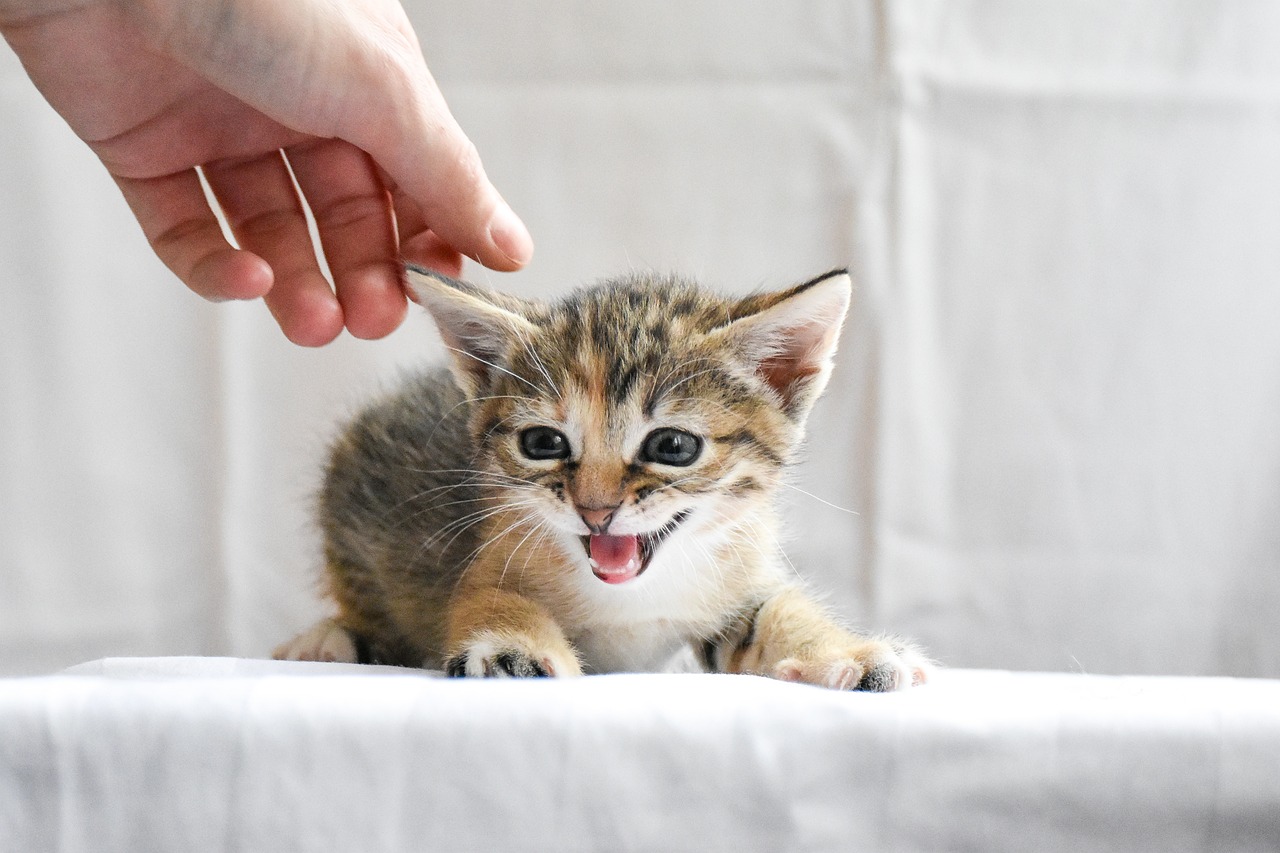
Health Considerations
Like all breeds, the Abyssinian cat is prone to certain health issues that potential owners should be aware of. Understanding these health considerations is key to ensuring that your feline friend lives a long, happy, and healthy life. Abyssinians are generally known for their vitality, but they can be susceptible to specific genetic conditions and diseases. Regular veterinary check-ups are essential for early detection and management of these issues. It's always better to be proactive than reactive when it comes to your pet's health.
One of the most common health concerns for Abyssinians is pyruvate kinase deficiency (PKD), a genetic disorder that can lead to anemia. This condition is inherited and affects the cat's ability to produce an enzyme necessary for red blood cell function. Early screening can help detect this issue, allowing for timely intervention and management. Another health issue to be aware of is renal amyloidosis, which can lead to kidney failure. This condition is also genetic and more common in Abyssinians than in other breeds, making regular vet visits crucial.
In addition to genetic conditions, Abyssinians can face typical feline health concerns, including dental disease, obesity, and urinary tract issues. Maintaining a healthy weight is particularly important, as obesity can exacerbate other health problems. A balanced diet tailored to their specific needs, alongside regular exercise, can help keep your Abyssinian in tip-top shape.
| Health Concern | Description | Preventative Measures |
|---|---|---|
| Pyruvate Kinase Deficiency | A genetic disorder leading to anemia. | Regular screening and blood tests. |
| Renal Amyloidosis | A condition that can lead to kidney failure. | Routine veterinary check-ups and monitoring. |
| Dental Disease | Common in cats, can lead to serious health issues. | Regular dental cleanings and at-home care. |
| Obesity | Can lead to various health complications. | Balanced diet and regular exercise. |
| Urinary Tract Issues | Can cause discomfort and serious health risks. | Hydration and proper diet. |
In conclusion, while Abyssinians are generally healthy cats, being aware of their potential health issues can help you provide the best care possible. Regular veterinary visits, a balanced diet, and a healthy lifestyle can go a long way in ensuring your Abyssinian remains a vibrant and active member of your family.
- What is the average lifespan of an Abyssinian cat? Abyssinians typically live between 12 to 15 years, though some may live longer with proper care.
- Are Abyssinians prone to any specific diseases? Yes, they can be prone to genetic conditions such as pyruvate kinase deficiency and renal amyloidosis.
- How often should I take my Abyssinian to the vet? Regular check-ups at least once a year are recommended to monitor their health.
- What kind of diet is best for an Abyssinian? A balanced diet rich in protein is ideal, along with plenty of fresh water to keep them hydrated.
- Do Abyssinians require special grooming? While they have short coats, regular brushing is recommended to keep their fur healthy and reduce shedding.
Genetic Conditions
The Abyssinian cat, while known for its stunning beauty and vibrant personality, is not without its health concerns. Like many purebred cats, Abyssinians can be susceptible to certain that potential owners should be aware of. Understanding these conditions can be crucial for maintaining your feline friend's health and ensuring a long, happy life.
One of the most notable genetic issues in Abyssinians is pyruvate kinase deficiency (PKD), a hereditary condition that affects the red blood cells. This deficiency can lead to anemia, which may cause lethargy, pale gums, and an increased heart rate. Regular veterinary check-ups are essential for early detection of this condition, as it can be managed effectively with appropriate care.
Another condition to watch out for is gingivitis, a dental disease that can affect Abyssinians due to their unique jaw structure. This condition can lead to inflammation of the gums and, if left untreated, may result in tooth loss. Owners should prioritize dental health by providing regular dental cleanings and incorporating dental-friendly treats into their cat's diet.
Additionally, Abyssinians can be prone to hip dysplasia, a genetic condition that affects the hip joint and can lead to arthritis over time. This condition is particularly important to monitor in active cats, as it can impact their agility and overall quality of life. Regular exercise and maintaining a healthy weight can help mitigate the effects of hip dysplasia.
To summarize, here are some key genetic conditions that Abyssinians may face:
- Pyruvate Kinase Deficiency (PKD): Affects red blood cells, leading to anemia.
- Gingivitis: Dental disease that can cause gum inflammation and tooth loss.
- Hip Dysplasia: Affects the hip joint and may lead to arthritis.
By being proactive and informed about these genetic conditions, Abyssinian owners can take steps to ensure their beloved pets remain healthy and vibrant. Regular veterinary visits, a balanced diet, and proper dental care are all part of a comprehensive approach to maintaining the well-being of these beautiful cats.
Q: What are the common genetic issues in Abyssinian cats?
A: Common genetic issues include pyruvate kinase deficiency, gingivitis, and hip dysplasia. Regular veterinary check-ups can help in early detection and management.
Q: How can I prevent dental issues in my Abyssinian?
A: Regular dental cleanings, dental treats, and a proper diet can help prevent dental issues like gingivitis.
Q: Is there a specific diet recommended for Abyssinians?
A: A balanced diet rich in protein and low in carbohydrates is ideal for Abyssinians. Consult with your vet for personalized dietary recommendations.
Q: How often should I take my Abyssinian to the vet?
A: It's recommended to take your Abyssinian for annual check-ups, but more frequent visits may be necessary if any health concerns arise.
Dietary Needs
The dietary needs of an Abyssinian cat are crucial for maintaining their overall health and vitality. These energetic felines require a balanced diet that supports their active lifestyle and unique physiology. A well-rounded diet should primarily consist of high-quality protein, as Abyssinians are known for their muscular build and agility. It's important to choose cat food that lists meat as the first ingredient, ensuring they receive the necessary nutrients to thrive.
In addition to protein, Abyssinians benefit from a mix of fats, carbohydrates, vitamins, and minerals. Fats are essential for energy and maintaining a healthy coat, while carbohydrates provide a quick energy source. However, it’s crucial to ensure that the carbohydrates are of high quality, such as those derived from whole grains or vegetables. A well-balanced diet might include:
- High-quality dry kibble - Look for brands that offer a high protein content and are free from fillers.
- Canned food - This can provide additional moisture to their diet, which is beneficial for hydration.
- Fresh water - Always ensure that your Abyssinian has access to clean, fresh water at all times.
It’s also important to monitor portion sizes and avoid overfeeding, as Abyssinians can be prone to obesity if their diet is not properly managed. Regularly consulting with a veterinarian can help determine the right portion sizes and dietary adjustments based on your cat's age, weight, and activity level.
Lastly, consider incorporating occasional treats into their diet, but do so sparingly. Treats should not exceed 10% of their daily caloric intake. Opt for healthy options like freeze-dried meat or specially formulated cat treats that are low in calories. By providing a balanced diet tailored to their specific needs, you can help ensure that your Abyssinian cat remains healthy, happy, and full of life.
Here are some common questions regarding the dietary needs of Abyssinian cats:
- What type of food is best for an Abyssinian? A high-protein diet that includes both dry kibble and canned food is ideal for Abyssinians.
- How much should I feed my Abyssinian? The amount varies based on age and activity level, but it's best to consult with your veterinarian for specific recommendations.
- Can I give my Abyssinian human food? Some human foods are safe, but many can be harmful. Always check with your vet before introducing new foods.
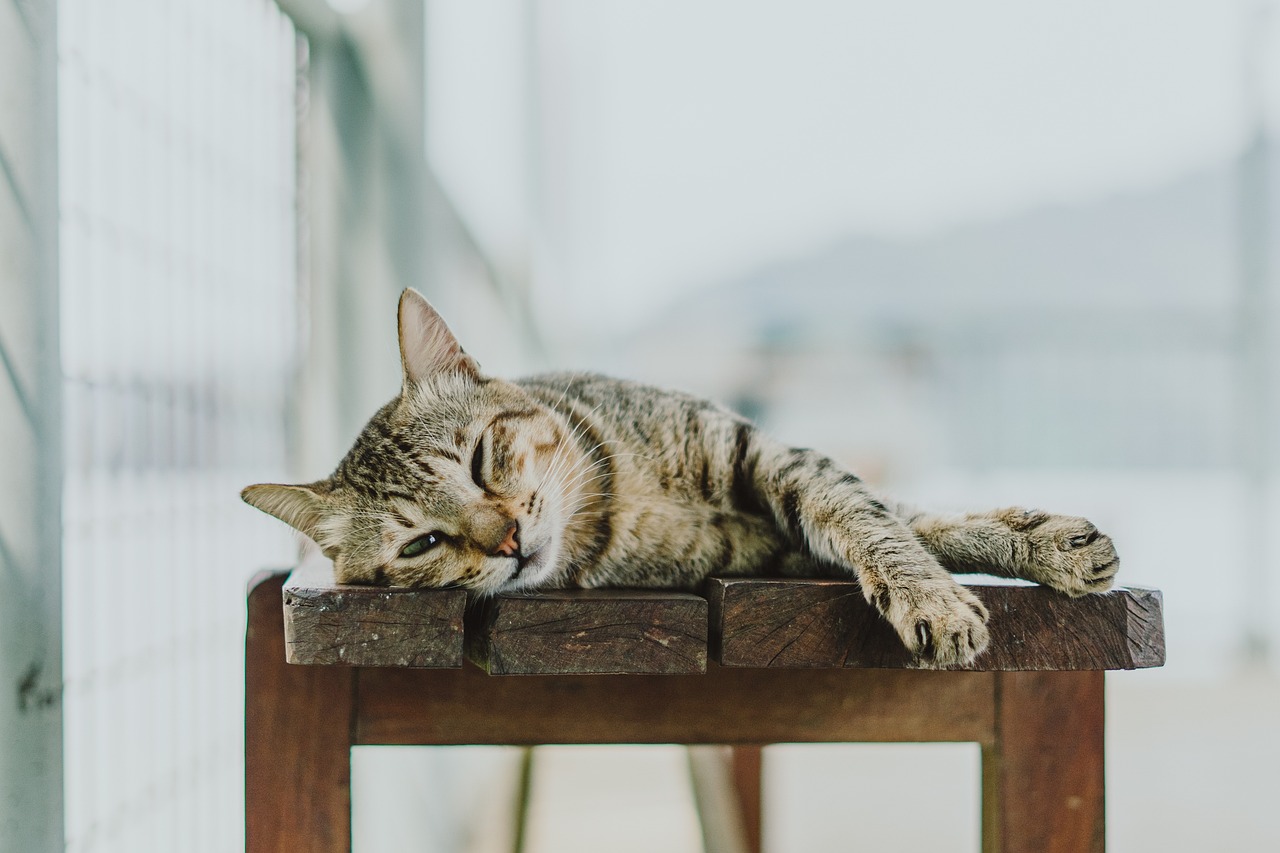
Conclusion
In summary, the Abyssinian cat is not just another feline; it is a breed steeped in history and characterized by its unique features. From their striking ticked tabby coat to their playful and affectionate personalities, Abyssinians have captured the hearts of many cat lovers around the world. Understanding their needs—from grooming to health considerations—is crucial for anyone considering welcoming one of these enchanting cats into their home.
As potential owners, it's essential to appreciate the Abyssinian's vibrant nature and their requirement for social interaction. These cats thrive in environments where they can engage with their humans and other pets, making them ideal companions for families and individuals alike. Their playful antics and affectionate behavior can bring joy and laughter into any household, creating bonds that last a lifetime.
Moreover, taking care of an Abyssinian involves more than just providing food and shelter. Regular grooming, attention to their health, and understanding their dietary needs are all vital aspects of responsible pet ownership. By being proactive about their care, owners can ensure that their Abyssinian remains healthy, happy, and full of life.
Ultimately, the Abyssinian cat is a unique blend of beauty, intelligence, and charisma. Whether you are drawn to their stunning appearance or their engaging personality, one thing is for sure: bringing an Abyssinian into your life is a decision filled with rewards. So, if you're ready for a playful companion who will keep you on your toes and fill your home with love, the Abyssinian might just be the perfect match for you!
- What is the average lifespan of an Abyssinian cat? Abyssinians typically live between 12 to 15 years with proper care.
- Are Abyssinians good with children? Yes, Abyssinians are known for their playful and social nature, making them great companions for children.
- Do Abyssinians require a lot of grooming? While they have short coats, regular brushing is recommended to keep their fur healthy and reduce shedding.
- What are common health issues in Abyssinians? Some common health concerns include genetic conditions like renal amyloidosis and dental issues.
- Can Abyssinians be left alone for long periods? Abyssinians thrive on social interaction, so it's best to avoid leaving them alone for extended periods.
Frequently Asked Questions
- What is the origin of the Abyssinian cat?
The Abyssinian cat has a fascinating and somewhat mysterious history, believed to be linked to ancient civilizations, particularly in Africa. Many enthusiasts think they resemble the cats depicted in ancient Egyptian art, which adds to their allure and charm.
- What are the key physical traits of an Abyssinian?
Abyssinians are known for their striking appearance, featuring a short, ticked coat that gives them a unique look. They have a muscular build, long legs, and large, expressive eyes that can come in a variety of colors, making them stand out among other breeds.
- How playful are Abyssinian cats?
Playfulness is a hallmark of the Abyssinian breed! These cats are energetic and love to engage in interactive play. They enjoy chasing toys, climbing, and exploring their environment, making them lively companions for families and individuals alike.
- Do Abyssinians require a lot of grooming?
While Abyssinians have short coats, they still need regular grooming to keep their fur healthy and shiny. Brushing them a couple of times a week can help reduce shedding and maintain their coat's luster. Bathing is not often necessary, but it can be beneficial occasionally.
- What health issues are common in Abyssinian cats?
Abyssinians can be prone to certain genetic conditions, so it's essential for owners to be aware of potential health concerns. Regular veterinary check-ups are crucial for early detection and prevention of these issues, ensuring that your furry friend stays healthy and happy.
- What should I feed my Abyssinian cat?
Proper nutrition is vital for maintaining the health of an Abyssinian cat. A balanced diet that includes high-quality cat food, whether dry or wet, is recommended. Always consult with your veterinarian for specific dietary recommendations tailored to your cat's age, weight, and health needs.
- Are Abyssinians good with other pets?
Abyssinians are generally sociable and can get along well with other pets, especially if they are socialized from a young age. Their playful and affectionate nature often helps them bond with other animals, making them a great addition to multi-pet households.

